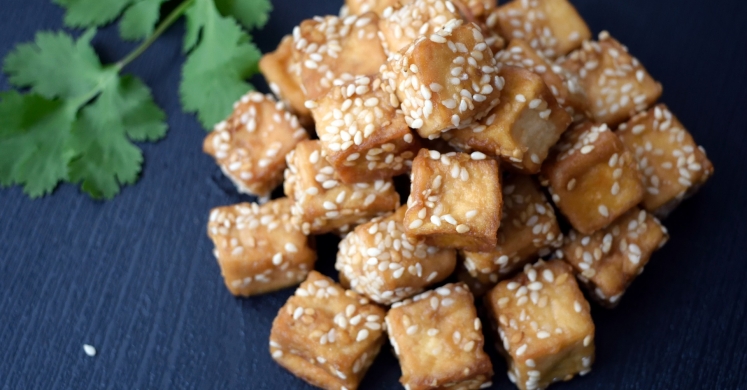Phipps Stories

Is Soy Safe to Eat?
Soy is a nutrient dense legume that serves as a staple in many countries throughout the world. Yet, there has been increasing uncertainty about the effects soy has on the body. The skepticism surrounding soy foods is attributed to its high concentration of isoflavones. A type of plant estrogen (phytoestrogen), isoflavones bind to estrogen receptors in the breast and other tissues1. Some people fear that this estrogen-binding property can have carcinogenic and hormonal effects. Although estrogen and isoflavones share receptors, this does not mean that isoflavones act like estrogen. Isoflavones differ from estrogen at the molecular and clinical levels2.
Research that suggests the harmful effects of isoflavones are based on animal data. Human studies support the safety of isoflavone-rich food for adults. Clinical studies show that soy foods have little to no effects on circulating reproductive hormones in men or women3,4. In fact, eating soy foods during childhood and teen years may have anti-carcinogenic effects. One serving per day during adolescence may reduce lifetime breast risk by as much as 25 to 50 percent5,6. Women with breast cancer who eat soy are less likely to see their cancer return7. The American Cancer Society states that women with breast cancer can eat soy safely8. Eating soy may reduce prostate cancer risk as well. In Asia, men who eat the most soy have about one-half the risk of getting prostate cancer compared to men who eat little soy10.
So how much soy should we eat per day to see these benefits? The average soy intake among Japanese adults ranges from about 1 to 2 servings per day. Some studies show that disease rates are even lower with an intake of 2 to 3 servings per day11. Try to aim for at least one minimally processed soy food a day (e.g. tofu, edemame, soy milk, tempeh).
Need recipe help? Check out these soy-based meals!
- https://www.gimmesomeoven.com/asian-broccoli-salad-peanut-sauce/
- https://ohmyveggies.com/tempeh-hash-with-brussels-sprouts/
- https://www.rabbitandwolves.com/parmesan-herb-crusted-tofu-vegan/
Sources:
- Franke AA, Custer LJ, Wang W, Shi CY. HPLC analysis of isoflavonoids and other phenolic agents from foods and from human fluids. Proc Soc Exp Biol Med. 1998;217(3):263-273.
- Oseni T, Patel R, Pyle J, Jordan VC. Selective estrogen receptor modulators and phytoestrogens. Planta Med. 2008;74(13):1656-1665.
- Hooper L, Ryder JJ, Kurzer MS, et al. Effects of soy protein and isoflavones on circulating hormone concentrations in pre- and postmenopausal women: a systematic review and meta-analysis. Hum Reprod Update. 2009;15(4):423-440.
- Hamilton-Reeves JM, Vazquez G, Duval SJ, Phipps WR, Kurzer MS, Messina MJ. Clinical studies show no effects of soy protein or isoflavones on reproductive hormones in men: results of a metaanalysis.
- Messina M, Hilakivi-Clarke L. Early intake appears to be the key to the proposed protective effects of soy intake against breast cancer. Nutr Cancer. 2009;61(6):792-798.
- Messina M, Wu AH. Perspectives on the soy-breast cancer relation. Am J Clin Nutr. 2009;89(5):1673S-1679S.
- Messina M, Caan BJ, Abrams DI, Hardy M, Maskarinec G. It’s time for clinicians to reconsider their proscription against the use of soyfoods by breast cancer patients. Oncology. 2013;27:430-437.
- Rock CL, Doyle C, Demark-Wahnefried W, et al. Nutrition and physical activity guidelines for cancer survivors. CA Cancer J Clin. 2012;62(4):242-274.
- Fertil Steril. 2010;94(3):997-1007.3. Messina M, Hilakivi-Clarke L. Early intake appears to be the key to the proposed protective effects of soy intake against breast cancer. Nutr Cancer. 2009;61(6):792-798.
- Yan L, Spitznagel EL. Soy consumption and prostate cancer risk in men: a revisit of a meta-analysis. Am J Clin Nutr. 2009;89(4):1155-1163.
- Messina M, Nagata C, Wu AH. Estimated Asian adult soy protein and isoflavone intakes. Nutr Cancer. 2006;55(1):1-12.

